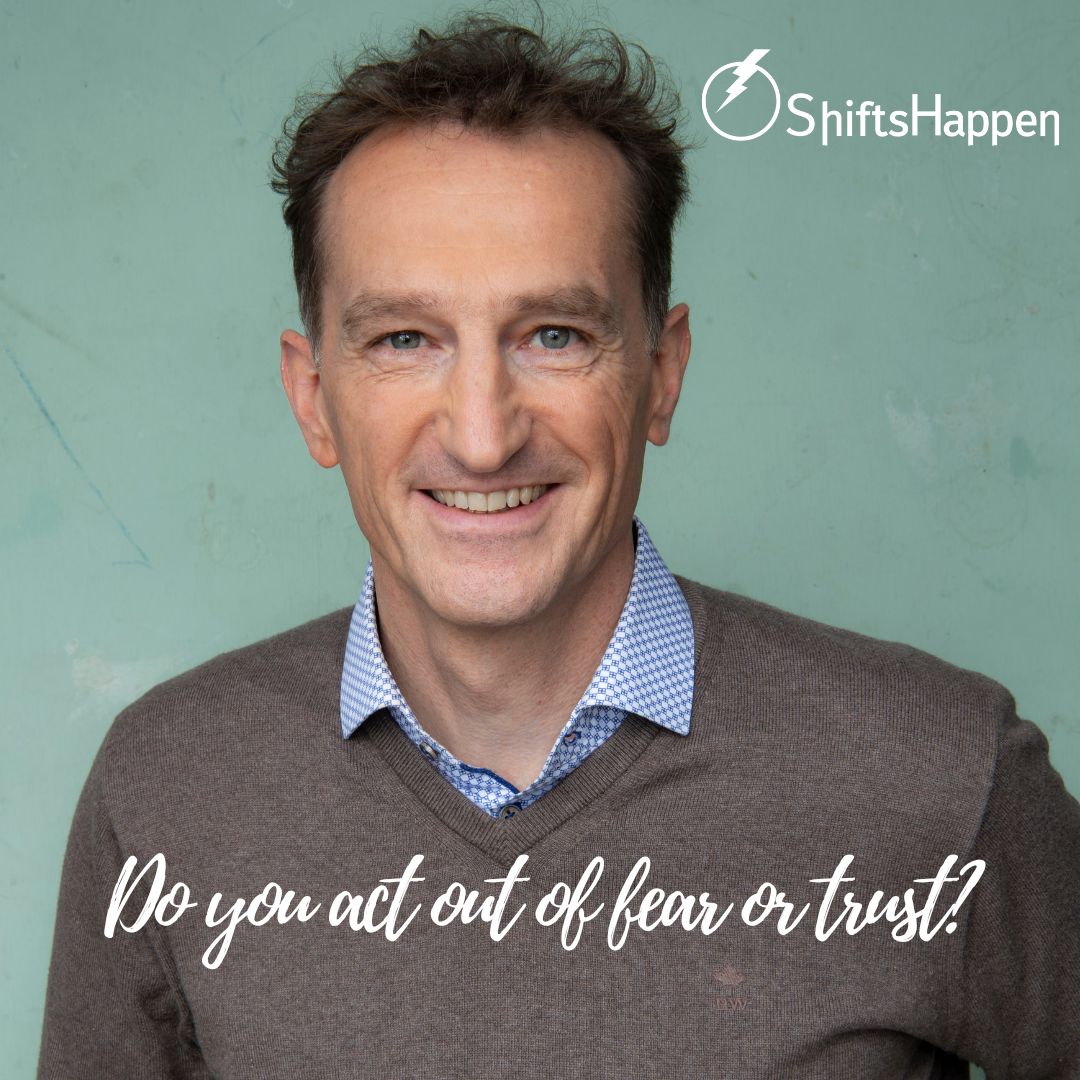Do you act out of fear or trust?

Do you act out of fear or trust?
This question often comes up in the coaching sessions I lead. Exploring this question often leads to the insight that, however subtle, fear is often the driving force. "What if what I want to do goes wrong, or what if I don’t succeed?" "What if the other person disagrees?" "What if…". Based on this insight, you can also turn the question around: "What do I need to act out of trust? And what would make that possible?" These questions often work expansively and allow for an opening perspective.
Acting out of fear or trust is also a leading theme on a larger, more comprehensive level in our society and in the world.
A while ago, I spoke to a friend from the United States via Zoom, and she told me that more and more people in her social circle are buying a gun for protection and defense in case they are confronted with someone who wants to harm them. An action that stems from pure fear. One could say that you then place more trust in the gun than in your own ability to find a solution in another way if that situation arises. I was shocked; how far has society come that people who had never thought about it before are now buying a gun and thus also willing to use it?
Now, compared to the United States, guns will never be as widely spread in the Netherlands, but many cultural trends do blow over to us. The polarization in our country is unmistakably ongoing. Fortunately (still?) not as intense as there, but what steps can we, can I, can you, take now to prevent us from sliding into a situation where we can no longer understand each other?
What is needed to make that possible? In my experience, at least the following:
· Accepting that the other person has a different opinion. This does not mean agreeing with it or resigning yourself from it; no, the other person has a different opinion, and that is how it is.
· Entering into dialogue openly and with curiosity, not from the need to be right or to convince, but to understand how the other person views the world.
· Being willing to listen and put yourself in the other person's shoes and see what wants to emerge in the interaction.
In short, use trust as a starting point—trust in yourself, the other person, and the potential hidden in that conversation. In my experience, this is a conscious choice: do you act out of fear and avoid contact with those who think differently and stay in your social 'bubble,' or do you act out of trust and seek rapprochement and dialogue?
Take a moment this week to check with yourself: Do I act out of fear or trust? If you notice that fear is leading, let that be completely okay. Then, consciously choose trust and see what it brings you.
I wish you many inspiring dialogues this week!

